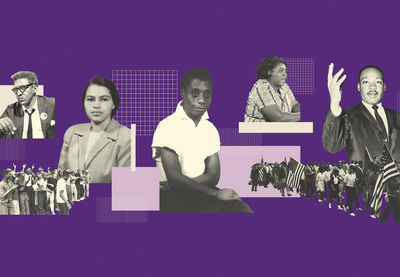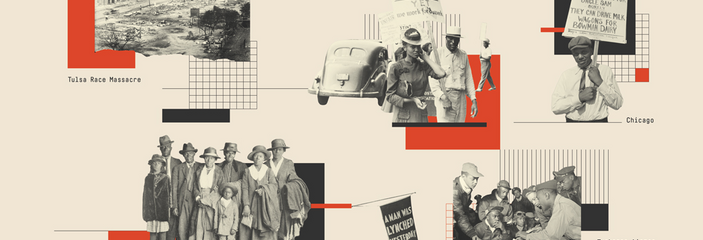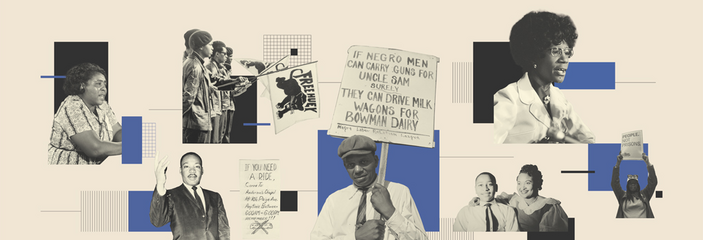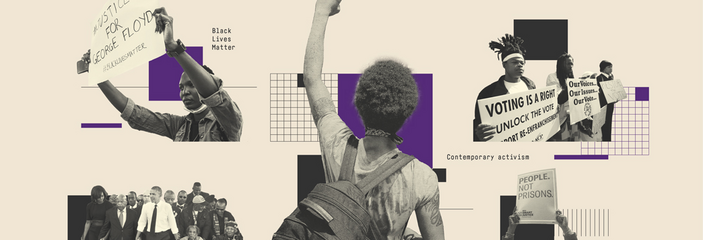Teaching the Civil Rights Movement begins in 1877 with Reconstruction and continues the narrative of the movement for equality and civil rights to the present. This framework centers Black Americans’ struggle, while pointing out the ways in which white supremacy was institutionalized—across multiple levels of society—to deny political, social and economic equality to Black people. By engaging young people in a more inclusive history and activist pedagogy, students can make connections between past and present, recognizing the relevance of history to today’s justice and civil rights movements.
The framework is designed to map onto, and expand upon, existing U.S. history and interdisciplinary curricula for grades 9-12. Educators can decide on what content to integrate into their history lessons; the framework design allows easy choice. This publication includes: the Framework, which organizes Essential Knowledge into four chronological periods and within 14 Summary Objectives; Guiding Principles that provide essential practices to support educators in being reflective and intentional in their teaching; and Resources, which, while by no means an exhaustive list, provide options for teaching the Essential Knowledge.
Introduction
By engaging young people in a more inclusive history and activist pedagogy, students can make connections between past and present, recognizing the relevance of history to today’s justice and civil rights movements.
Teaching the Civil Rights Movement Framework
This section organizes Summary Objectives and Essential Knowledge into four chronological periods. This structure provides a blueprint for integrating the movement for freedom and full civic participation into history and interdisciplinary course units from Reconstruction to the present.
Guiding Principles
These strategies provide guidance for practices that can be integrated into planning and instruction.
Advocating for Teaching Honest History Guide
The Advocating for Teaching Honest History guide offers resources and tools for teaching honest history in the classroom and strategies for advocating for honest history education.




